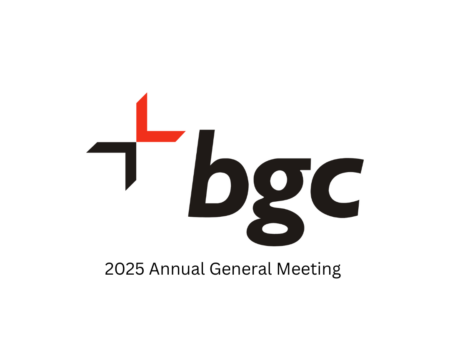As Macau’s vibrant gaming sector braces for slower growth in July, the industry finds itself navigating a complex landscape shaped by stringent measures from Chinese authorities aimed at combating illegal money exchange activities. Analysts from Morgan Stanley, including Praveen K. Choudhary, Gareth Leung, and Stephen W. Grambling, have forecasted a challenging second quarter, with significant implications for the sector’s performance.
Forecasted Decline in Gaming Revenue and EBITDA
Morgan Stanley’s analysts have highlighted that the second quarter is expected to witness the first negative quarter-on-quarter growth in both industry mass gross gaming revenue (GGR) and corporate EBITDA since the post-Covid-19 reopening. Specifically, mass GGR is projected to decline by 2% quarter-on-quarter, reaching 113% of 2019 levels. Corporate EBITDA is anticipated to decrease by 7% quarter-on-quarter, reaching 80% of pre-pandemic levels. This projected slowdown is attributed to the rigorous crackdown on illegal money exchanges, coupled with weaker macroeconomic conditions and subdued consumption and retail sales in China.
Challenges Beyond the Second Quarter
The analysts warn that the slowdown observed in the second quarter may persist into the third quarter, further impacting the Macau market. The ongoing crackdown on illegal money exchanges is expected to continue exerting downward pressure on gaming revenues. Additionally, the weaker macroeconomic conditions in China, characterized by reduced consumer spending and lower retail sales, could exacerbate the situation, making it difficult for the gaming sector to rebound quickly.
Impact of High-Profile Visits on Gaming Sector
Looking ahead to the fourth quarter, the gaming sector may face additional challenges due to significant events. The anticipated visit of China’s President Xi Jinping, in celebration of the 25th anniversary of Macau’s handover to China, is expected to draw considerable attention. Such high-profile visits often lead to increased security measures and stricter regulatory oversight, which could further impact the gaming sector’s performance during this period.
Macau’s Multi-Front Battle Against Crime
Macau authorities are actively tackling crime on multiple fronts, with a particular focus on casino fraud and cross-border illegal gambling syndicates. Recent anti-crime operations have led to the detention of nearly 300 individuals for investigation, with seven individuals facing charges. In a notable bust, Macau police dismantled an illegal mahjong operation around Av. Marginal do Lam Mau, resulting in the arrest of four suspects. These efforts underscore the authorities’ commitment to maintaining the integrity of Macau’s gaming sector and protecting it from illicit activities.
Positive Outlook Despite Challenges
Despite the prevailing challenges, analysts remain optimistic about the future of Macau’s gaming sector. They believe that the combined EBITDA margins for the six largest gaming concessionaires in Macau will remain robust from June onwards. This positive outlook is underpinned by the sector’s resilience and ability to adapt to changing regulatory environments. The continued commitment of Macau’s authorities to combat illegal activities and uphold the sector’s integrity also bodes well for its long-term prospects.
Conclusion: Macau’s Gaming Sector
As Macau’s gaming sector faces a period of slower growth, the industry must adapt to a rapidly evolving landscape characterized by stringent regulatory measures and changing economic conditions. While challenges persist, there is a positive outlook for the sector’s resilience and potential for recovery. By prioritizing regulatory compliance, diversifying revenue streams, leveraging technology, and fostering collaboration, Macau’s gaming operators can navigate the current challenges and pave the way for sustained growth and success.
FAQs About Macau’s Gaming Sector and July Growth Projections
1. Why is Macau’s gaming sector expected to experience slow growth in July?
The slowdown is primarily due to intensified efforts by Chinese authorities to combat illegal money exchange activities, coupled with weaker macroeconomic conditions and reduced consumer spending in China.
2. What are the specific forecasts for Macau’s gaming sector in the second quarter?
Analysts from Morgan Stanley predict the second quarter will see the first negative quarter-on-quarter growth in both industry mass gross gaming revenue (GGR) and corporate EBITDA since the post-Covid-19 reopening. Mass GGR is expected to decline by 2%, reaching 113% of 2019 levels, while corporate EBITDA is expected to decrease by 7%, reaching 80% of pre-pandemic levels.
3. What factors are contributing to the projected decline in gaming revenue and EBITDA?
The projected decline is attributed to the crackdown on illegal money exchanges, weaker macroeconomic conditions, and reduced consumption and retail sales in China.
4. Will the slowdown in Macau’s gaming sector continue beyond the second quarter?
Yes, analysts suggest that the slowdown may persist into the third quarter, continuing to impact the Macau market due to ongoing regulatory crackdowns and economic challenges.
5. How might high-profile visits impact Macau’s gaming sector?
The anticipated visit of China’s President Xi Jinping in the fourth quarter, in celebration of the 25th anniversary of Macau’s handover to China, may lead to increased security measures and stricter regulatory oversight, potentially further impacting the gaming sector’s performance.
6. What anti-crime measures are Macau authorities taking?
Macau authorities are actively addressing crime on multiple fronts, including casino fraud and cross-border illegal gambling syndicates. Recent operations have resulted in the detention of nearly 300 individuals and the arrest of suspects involved in illegal activities such as mahjong operations.
7. What is the outlook for Macau’s gaming sector despite current challenges?
Analysts remain optimistic that the combined EBITDA margins for the six largest gaming concessionaires in Macau will remain strong from June onwards, indicating a positive outlook for the sector’s resilience and potential recovery.
8. Why is collaboration important for Macau’s gaming sector?
Collaboration with local authorities and industry stakeholders is crucial for developing comprehensive strategies to combat illegal activities and promote responsible gaming. Partnerships with tourism boards and hospitality providers can also enhance Macau’s appeal as a premier gaming and entertainment destination.


















